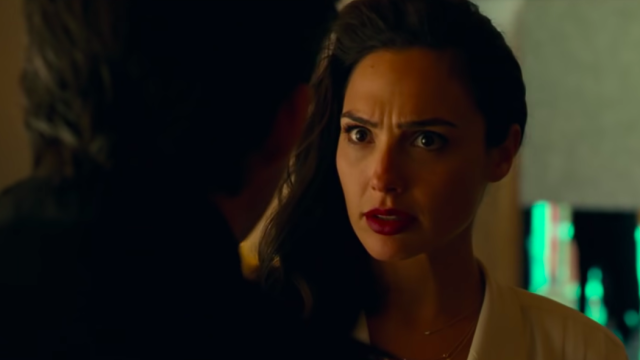It’s no secret that director Patty Jenkins had to fight tooth and nail to realise her vision for the DCEU’s first Wonder Woman movie. One of the more compelling ideas to come out of Wonder Woman 1984‘s discourse is that, even though Jenkins’ first foray into Themysciran heroics was a resounding success, it never quite relaxed enough to back away and let her properly do her thing.
With Wonder Woman being such an integral part of DC Comics’ brand identity, it’s easy to understand why the studio might have been as precious as it was with the IP back when Jenkins was first brought on to the movie’s tumultuous production, back when she was first offered to direct a Wonder Woman movie in 2007. Jenkins initially turned Warner down — and then signed up, departed over creative differences in 2011 — only to return to helm the project years later after she left what became Thor: The Dark World. But during a recent conversation on Marc Maron’s WTF podcast (via Indiewire), Jenkins went into detail about how intensely she felt sidelined after being tapped for Wonder Woman — so much so that to Jenkins, it seemed as if the studio only wanted her around for optics.
[referenced id=”1661008″ url=”https://gizmodo.com.au/2020/12/the-lasso-of-truth-is-wonder-woman-1984s-real-star/” thumb=”https://gizmodo.com.au/wp-content/uploads/2020/12/30/muzqryheoukzktlatsje-300×124.gif” title=”The Lasso of Truth Is Wonder Woman 1984’s Real Star” excerpt=”In Warner Bros.’ Wonder Woman 1984, princess Diana of Themyscira whips out a bevy of new, magical tricks to aid in her fight to save the world. She does battle with both Max Lord and Cheetah, two villains meant to embody all wanton greed and consumption that defined the decade….”]
“They wanted to hire me like a beard,” Jenkins said. “They wanted me to walk around on set as a woman, but it was their story and their vision. And my ideas? They didn’t even want to read my script.”
According to Jenkins, a fundamental difference in perspectives was the root of the problem that manifested itself as Warner Bros not having faith in Jenkins’ own point of view as a Wonder Woman fan. Where Jenkins wanted her film to explore the ideals and values that Wonder Woman embodies, she felt that the studio was more interested in dissecting the success of Christopher Nolan’s Batman films in an attempt to recreate it with the Themysciran princess.
“Even when I first joined Wonder Woman it was like, ‘Uhh, yeah, OK, but let’s do it this other way,’” Jenkins explained. “But I was like, ‘Women don’t want to see that. Her being harsh and tough and cutting people’s heads off… I’m a Wonder Woman fan, that’s not what we’re looking for.’ Still, I could feel that shaky nervousness [on their part] of my point of view.”
Of course, there are always multiple sides to every story, and with as many different scripts and creatives teams that were attached to what would become Jenkins’ Wonder Woman, there are certain to be other recollections as to what went down. Given how drastically different in terms of overall tightness Wonder Woman 1984 ended up being compared to its predecessor, it’s interesting to consider what sorts of conversations were had behind closed doors in the months leading up to its release — and what sorts of talks Jenkins and Warner Bros. might have in the near future.
Wonder Woman 1984 is currently in theatres and streaming on HBO Max.
[referenced id=”1660662″ url=”https://gizmodo.com.au/2020/12/warner-bros-is-fast-tracking-wonder-woman-3-after-1984s-apparent-success/” thumb=”https://gizmodo.com.au/wp-content/uploads/2020/12/28/nxqf8nkmdo2r4l4dwpks-300×169.png” title=”Warner Bros. Is Fast-Tracking Wonder Woman 3 After 1984’s Apparent Success” excerpt=”Like, that’s not surprising. But, dang, that was fast.”]
